Vidura then, addressing everybody, said,--'Ye kings of Pratipa's race, behold the great danger that ariseth from Bhimasena. Know ye for certain that this great calamity that threatens to overtake the Bharatas hath been sent by Destiny itself. The sons of Dhritarashtra have, indeed, gambled disregarding every proper consideration. They are even now
p. 139
disputing in this assembly about a lady (of the royal household). The prosperity of our kingdom is at an end. Alas, the Kauravas are even now engaged in sinful consultations. Ye Kauravas, take to your heart this high precept that I declare. If virtue is persecuted, the whole assembly becometh polluted. If Yudhishthira had staked her before he was himself won, he would certainly have been regarded as her master. If, however a person staketh anything at a time when he himself is incapable of holding any wealth, to win it is very like obtaining wealth in a dream. Listening to the words of the king of Gandhara, fall ye not off from this undoubted truth.'
"Duryodhana, hearing Vidura thus speak, said,--'I am willing to abide by the words of Bhima, of Arjuna and of the twins. Let them say that Yudhishthira is not their master. Yajnaseni will then be freed from her state of bondage."
"Arjuna at this, said,--"This illustrious son of Kunti, king Yudhishthira the just, was certainly our master before he began to play. But having lost himself, let all the Kauravas judge whose master he could be after that."
Vaisampayana continued,--"Just then, a jackal began to cry loudly in the homa-chamber of king Dhritarashtra's palace. And, O king, unto the jackal that howled so, the asses began to bray responsively. And terrible birds also, from all sides, began to answer with their cries. And Vidura conversant with everything and the daughter of Suvala, both understood the meaning of those terrible sounds. And Bhishma and Drona and the learned Gautama loudly cried,--Swashti! Swashti! 1 Then Gandhari and the learned Vidura beholding that frightful omen, represented everything, in great affliction, unto the king. And the king (Dhritarashtra) thereupon said,--
'Thou wicked-minded Duryodhana, thou wretch, destruction hath all ready overtaken thee when thou insultest in language such as this the wife of these bulls among the Kurus, especially their wedded wife Draupadi. And having spoken those words, the wise Dhritarashtra endued with knowledge, reflecting with the aid of his wisdom and desirous of saving his relatives and friends from destruction, began to console Krishna, the princess of Panchala, and addressing her, the monarch said,--'Ask of me any boon, O princess of Panchala, that thou desirest, Chaste and devoted to virtue, thou art the first of all my daughters-in-law.
"Draupadi said,--'O bull of the Bharata race, if thou will grant me a boon, I ask the handsome Yudhishthira, obedient to every duty, be freed from slavery. Let not unthinking children call my child Prativindhya endued with great energy of mind as the son of a slave. Having been a
p. 140
prince, so superior to all men, and nurtured by kings it is not proper that he should be called the child of a slave.
"Dhritarashtra said unto her,--'O auspicious one, let it be as thou sayest. O excellent one, ask thou another boon, for I will give it. My heart inclineth to give thee a second boon. Thou dost not deserve only one boon.
"Draupadi said,--'I ask, O king, that Bhimasena and Dhananjaya and the twins also, with their cars and bows, freed from bondage, regain their liberty.'
'Dhritarashtra said,--'O blessed daughter, let it be as thou desirest. Ask thou a third boon, for thou hast not been sufficiently honoured with two boons. Virtuous in thy behaviour, thou art the foremost of all my daughters-in-law.
Draupadi said,--'O best of kings, O illustrious one, covetousness always bringeth about loss of virtue. I do not deserve a third boon. Therefore I dare not ask any. O king of kings, it hath been said that a Vaisya may ask one boon; a Kshatriya lady, two boons; a Kshatriya male, three, and a Brahmana, a hundred. O king, these my husbands freed from the wretched state of bondage, will be able to achieve prosperity by their own virtuous acts!'"


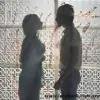
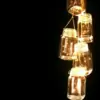
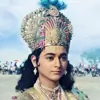



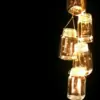





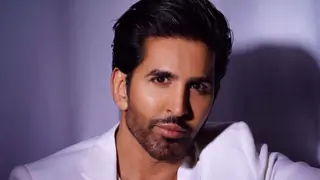












15